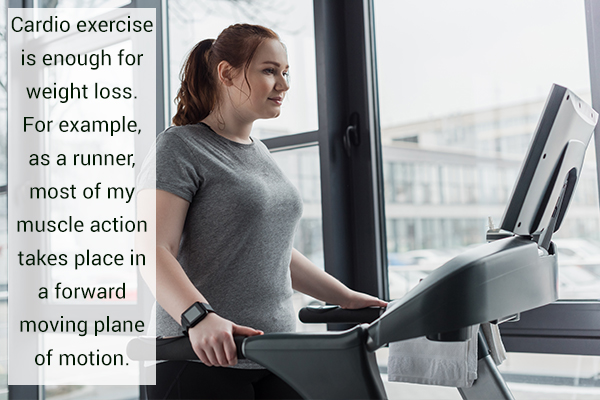In this article:
People usually aim to lose weight for increased energy or smaller clothing size, but weight management can also highly improve your overall health and quality of life.

Maintaining a healthy weight goes a long way in preventing diseases, health problems, and mental illnesses to some extent.
Is Obesity Considered a Disease?
Disease is defined as an abnormal condition that has a negative impact on the structure and function of an organism. By this definition, obesity is a disease and has also been classified as such by the World Health Organization. (1)(2)
However, as a disease, obesity is unique in that, for many people, it is a condition that results from the choices they make, such as improper nutrition and a lack of exercise. (3)(4)
Important Weight Loss Tips
In my weight loss journey, I found that one can lose weight by proper nutrition alone, but not necessarily by exercise alone. (5)

Here are some tips:
1. Refrain from consuming sugar
The most important thing a person can do is cutting out as much sugar as possible. It is also vital to considerably reduce your carbohydrate intake, (6)(7) such as rice and starchy vegetables, by at least ½ portion.
2. Set goals that are achievable
It is more satisfying to set a daily goal of completing a certain activity or meeting a daily caloric goal rather than to set a weekly weight loss goal. (8) The accomplishment of tasks, instead of a number on the scale, gives you time to learn and understand how your body responds.
3. Consult a nutritionist for a proper diet plan
Make sure to follow their instructions for losing the extra pounds.
4. Cook your food at home
Try to include vegetables, low-fat proteins, and whole grains in your meals. Consume around 40 grams of fiber every day as a plant-based diet helps you lose weight. (9)
5. Shop for ingredients wisely
Avoid foods such as chips, sodas, and other calorie-laden goods. Instead, buy healthy snacks such as apples, carrots, celery, and bananas.
6. Get proper sleep
It is essential to give your body proper rest to maintain your health and metabolism.
7. Exercise regularly
Cardiovascular exercises such as running, when coupled with proper nutrition, can aid in weight loss. (10) When you address heart health and actively work to improve cardiac function, everything else will fall into place no matter where you are starting.
8. Manage your stress
It is common for people to overeat when they are under stress. Moreover, high stress can impact your overall health.
Health Risks of Being Overweight

The most obvious and notable health repercussions that result from being overweight include high blood pressure, type 2 diabetes, heart disease, stroke, and death. (11)
However, there are other consequences that we may not often consider, such as:
- Osteoarthritis – The extra weight on your joints can expedite the breakdown of cartilage at the juncture where your bones come together. (12)
- Sleep apnea and breathing problems – The extra tissue sitting on the chest prevents the lungs from expanding to their full capacity. (13)
- Mental illness, such as clinical depression and anxiety (14)
- Body pain and difficulty with physical function
Weight Loss Myths That Need to Be Busted
The most outstanding weight loss myth to me is “fat makes you fat.”
On the contrary, it has been shown that diets high in fat (animal fat and cooking with coconut, avocado, olive, oils, and ghee) and low in carbohydrates facilitate weight loss. (15) This is because your body relearns how to utilize fat as the primary source of energy.
The Role of Diet in Weight Loss
I prefer to think of a change in eating habits as a lifestyle change rather than a diet.
The word “diet” implies that you’re finished once you reach your goal, and then you can stop. Maintaining a healthy lifestyle is something you should never think of as “finishing,” while you’re still breathing.
The Ideal Workout Routine for Losing Weight

Cardio exercise is enough for weight loss. However, weight lifting (or resistance training) can be instrumental in sculpting the body for physical appearance and balancing out muscle utilization. (16)
For example, as a runner, most of my muscle action takes place in a forward-moving plane of motion. Therefore, I will incorporate resistance exercises in a side-to-side plane of motion. This helps in preventing specific muscles from being overworked and others from being underutilized.
Expert Tips for Reaching Your Weight Goals
Some important tips to make your weight loss journey less difficult and more fruitful:
- You didn’t gain weight overnight, so you’re not going to lose weight overnight.
- You can always take one more step.
- If today was a bad day, it is in your power to make tomorrow a better one.
- Track your food – every bite, every drink, every gram.
- Be aware if you are eating for hunger, nutrition, or comfort.
- Know why you want to lose weight.
- Surround yourself with people who will support you in a positive way.
- Learn to be your own cheerleader.
- Commit.
- Pay attention to your inner voice. Put down all negativity and replace with positive thoughts; write them down if you have to.
Final Word
It is essential to achieve a balance between physical activity and food intake to help you lose weight easily. Both of these factors, when combined, help increase the chances of long-term weight loss.
While losing only a few pounds helps you feel energized and refreshed, it is vital to adopt a healthy lifestyle for preventing weight gain and reducing the risk of other health problems.
- Was this article helpful?
- YES, THANKS!NOT REALLY


